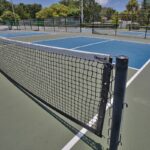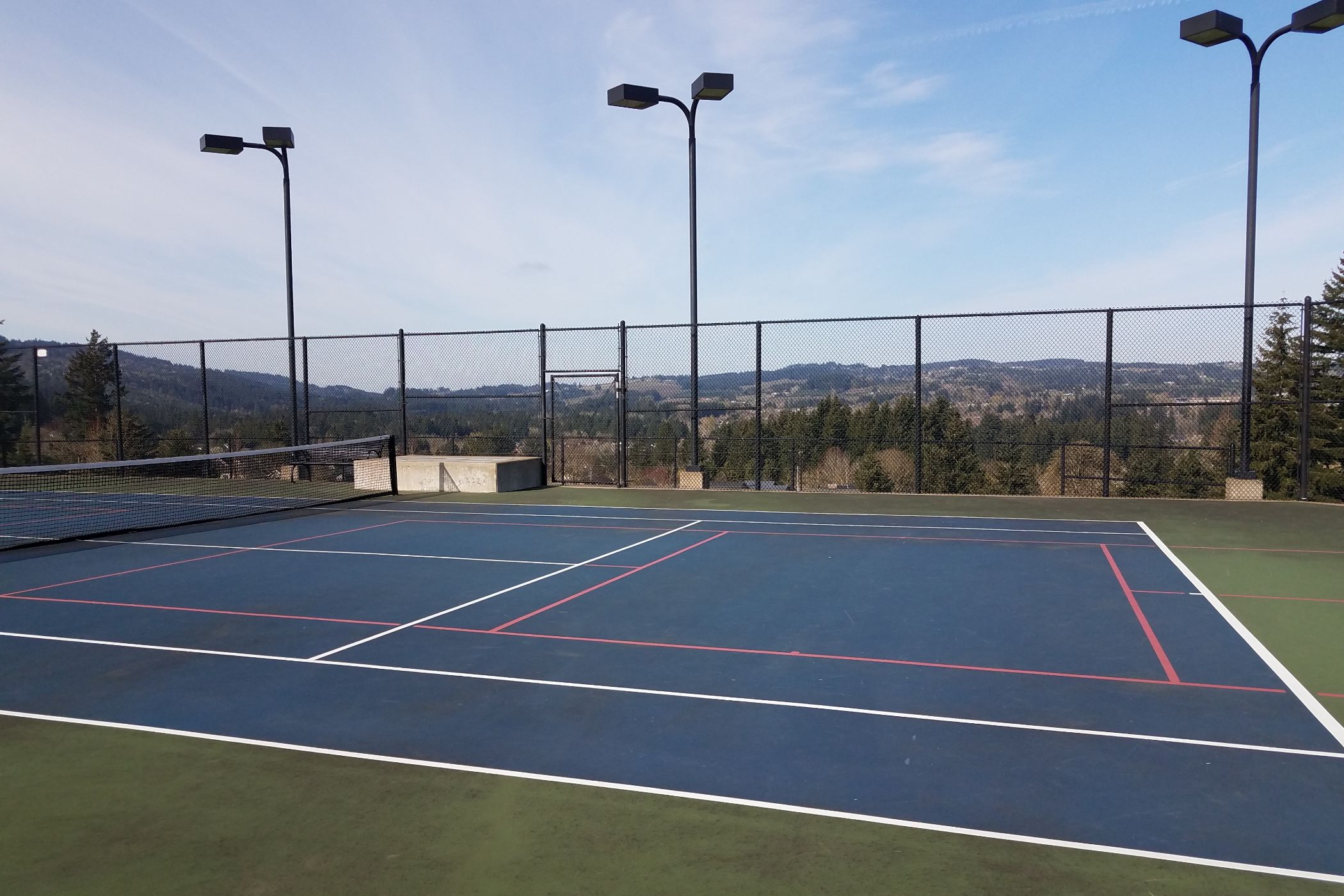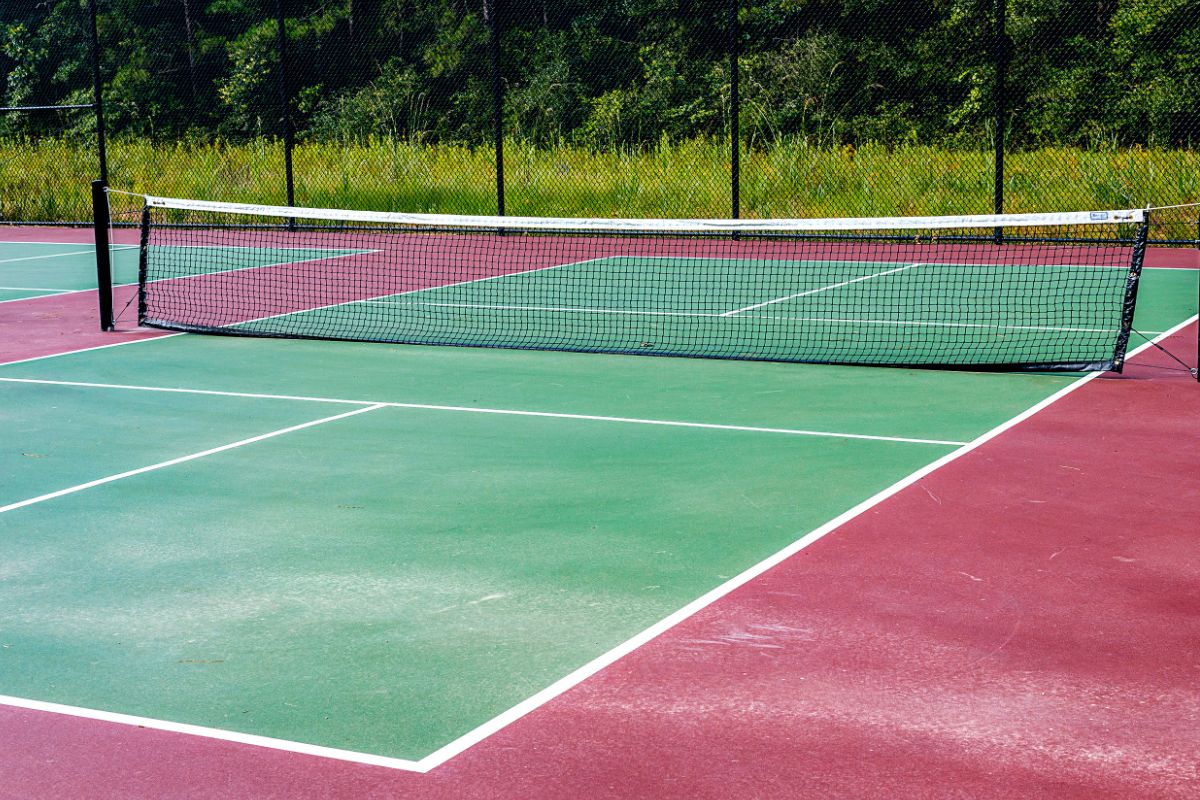Pickleball has rules that are pretty straightforward. Still, the rules around scoring can often be troublesome for beginner players. So how do you keep score in pickleball?
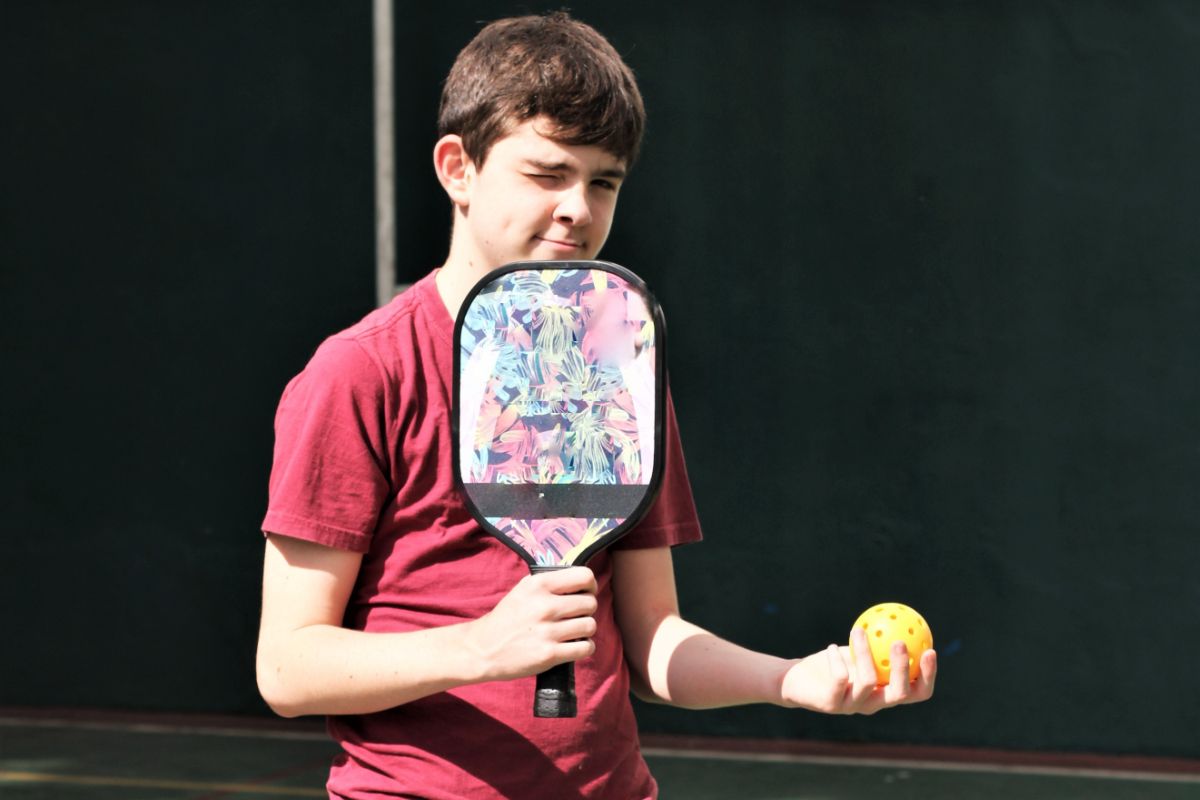
Below, we’ll tell you all you need to know about keeping score in pickleball, including how to call the score and clarify with the referee. But first, let’s take a look at the basics.
The Basics Of Pickleball Scoring
When playing doubles pickleball, the score consists of three numbers (e.g. 0-0-2). The first figure represents the score of the serving team, while the second figure represents the score of the receiving team.
The third figure, meanwhile, represents the server number, which is either #1 or #2.
So for instance, if the score in a doubles game is 10-8-2, then the serving team has scored 10 points, the receiving team has scored 8 points, and the serving team is on their second server.
In a game of singles pickleball however, the score only consists of two figures (e.g. 0-0). The first figure is the server’s score, and the second is the receiver’s score.
A third figure is not necessary because in a singles game, both sides only have one serve instead of two.
Points are only achieved in a pickleball game when a team is serving, or when the opposing side has committed technical fouls and have no points.
This is the case for both singles pickleball and doubles pickleball. In order to score a point during a pickleball game where you are serving, you need to win the rally.
To win a game of pickleball, you need to be the first side to score the winning point. Many pickleball games are played to 11 points, but some pickleball tournaments may be played to 15 or 21 points.
How To Call The Score In Pickleball
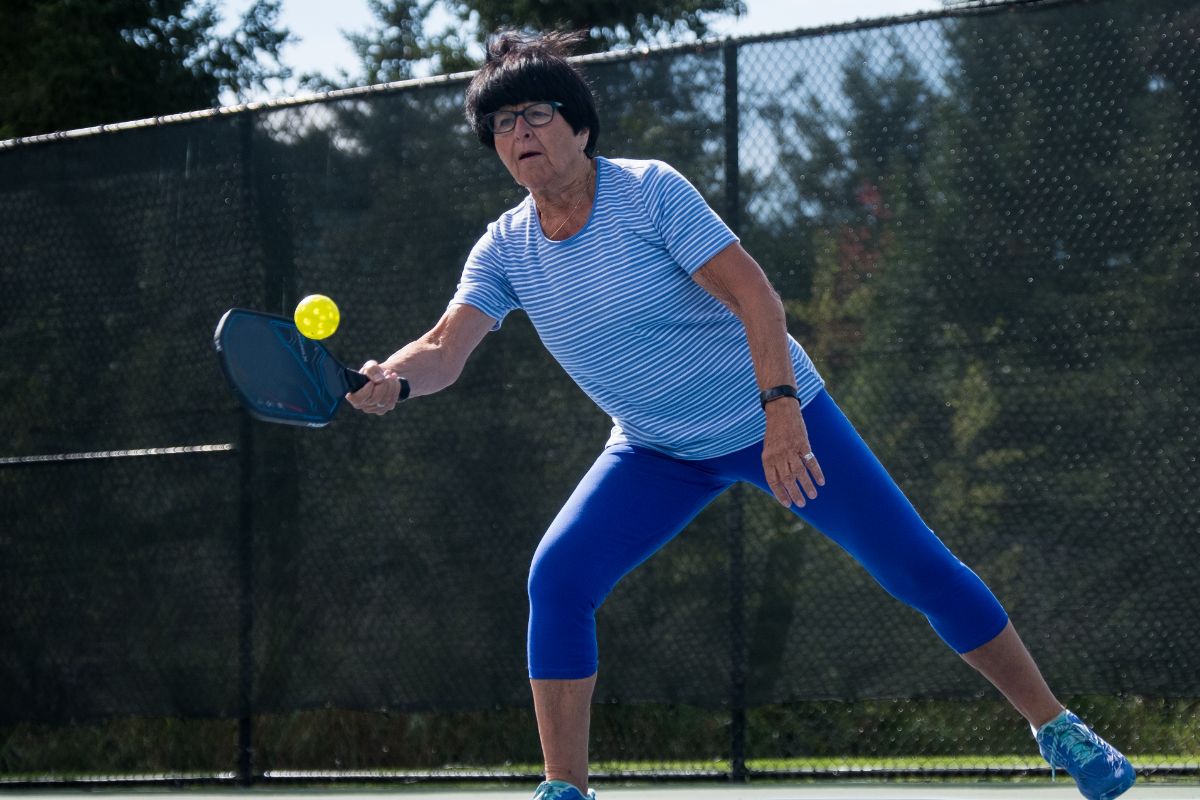
The score in a pickleball game shouldn’t be called until the receiver and the server are standing in the correct positions, and everyone is ready to play. Still, the score may be called if the receiver or the server are believed to be delaying the game.
If you need to indicate you are not ready for the score to be called, or if you need to stop the quick server from serving the pickleball, you should either raise your pickleball paddle – or the non-paddle hand – over your head, or stand with your back facing the net.
Still, it’s worth keeping in mind that these signals may not be considered if they are performed once the score has begun being called. You should also keep in mind that these signals are not permitted to be used for game delaying.
If a server is unable to call the score so all players can hear it, then their partner is allowed to call the score on their behalf. Still, whoever calls the serving team’s score must remain the same. The server’s partner has to call the score for the rest of the game.
What If The Score Is Called Incorrectly?
Sometimes, the server – or the referee – may call an incorrect score. If an incorrect score is called by the server – or the referee – then any player can end play, and ask for an accurate score to be called before the third shot of the rally.
If play is halted before the third rally and an incorrect score was called, then the server – or the referee – will call out the accurate score and serve the pickleball again without fear of penalties.
Still, if a player on the pickleball court ends play after the third rally, then the player who halted play will have committed a foul and will lose the rally.
Basically, you are now allowed to declare the incorrect score has been called once the third shot of the rally. Instead, you will need to dispute the score being called before the third rally.
Furthermore, if play is halted any time following the score being called (and the score was correct) then the player who halted play to contradict or dispute the score will have committed a foul and will lose the rally.
Halting play includes anything a player says to a referee that suggests the score is incorrect.
It’s worth noting that this rule is more of an issue in competitive or tournament play, rather than recreational matches.
Recreational pickleball players normally take a more casual approach and play on. However, it is essential to know the proper rules of pickleball in order to have a pleasant game.
How Do You Ask The Referee For The Score?
Questions that are frequently asked during a pickleball game are regarding who the server is, and what the score is. During a tournament game, you are only allowed to ask the referee select questions regarding the score, and how the accurate score can be determined.
The following questions can be asked to the referee by the server before the serve:
- What is the score?
- Who is the correct server?
- Are we in the correct position?
Meanwhile, the receiving team can ask the following questions:
- What is the score?
- Who is the correct receiver?
- Are we in the correct position?
If the receiving team or the serving team asks the referee these questions before the serve is made, then the referee will call a time-out, answer the question, and recall the score.
If these questions are asked following the serve, however, then the referee will not answer the questions.
Plus, if the receiving team or the serving team frequently asked these questions in order to disturb or delay a game, then the referee may issue a technical warning to the team persistently asking questions.
Final Thoughts
We hope our article has given you some insight into how to keep score in pickleball, and the rules and etiquette around calling the score.
While keeping score and calling the score isn’t such a big deal in recreational games, to get the most out of the game it’s a good idea to be familiar with the rules.
- What Kind Of Ball Is Used In Pickleball? - July 13, 2023
- How Much Does It Cost To Build A Pickleball Court? - July 11, 2023
- When Do New Pickleball Rules Take Effect? - July 8, 2023

